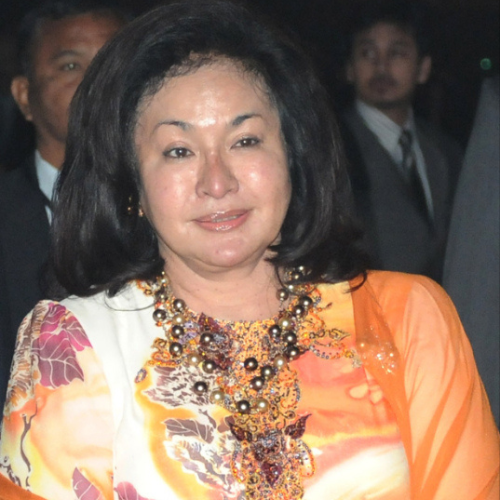Datin Seri Rosmah Mansor, the wife of former Malaysian Prime Minister Datuk Seri Najib Tun Razak, is poised at a critical juncture in her legal battle. On September 6, 2024, a decision will be made regarding her bid to have 17 charges, including those of money laundering and tax evasion, dropped. This decision is a pivotal moment in a case that has drawn significant public and media attention, reflecting the high stakes involved for both Rosmah and the broader legal and political landscape of Malaysia.
Background on Datin Seri Rosmah Mansor’s Charges
Datin Seri Rosmah Mansor faces a complex array of allegations that include 17 charges related to financial misconduct. The charges are categorized into two main groups. The first set consists of 12 charges related to alleged money laundering, involving transactions exceeding RM7 million. These allegations span from December 4, 2013, to June 8, 2017, and are centered around her financial dealings at Affin Bank Berhad’s Natural Rubber Building Branch.
The second set includes five charges of failing to declare income to the Inland Revenue Board (IRB). These accusations involve alleged omissions between May 1, 2014, and May 1, 2018, at the IRB Office. The scope of these charges emphasizes the serious nature of the allegations against Rosmah, and the legal proceedings have been closely watched due to her prominent status and the high-profile nature of the case.
The current representation, which is the third attempt by Rosmah’s legal team, seeks to have these charges dismissed. Previous representations were submitted on May 3 and August 18 of the previous year but have not yet been resolved. The persistence in seeking dismissal highlights the complexity of the case and the strategic legal maneuvers involved in addressing such high-stakes allegations.
Legal Proceedings and Datin Seri Rosmah Mansor’s Upcoming Decision
The legal process involving Datin Seri Rosmah Mansor has been marked by significant developments. Her counsel, Datuk Firoz Hussein Ahmad Jamaluddin, has been actively involved in preparing and submitting the representation to the Attorney General’s Chambers (AGC). The representation aims to secure the dropping of the 17 charges against Rosmah, asserting that the legal grounds for continuing the case may be flawed or insufficient.
Malaysia is Battling Electricity Theft in Cryptocurrency Mining: A $723 Million Menace
Deputy Public Prosecutor Ahmad Akram Gharib has confirmed that the primary task remaining is the finalization of the necessary documentation. Once completed, this will allow the court to proceed with the decision regarding Rosmah’s bid. Trial Judge K. Muniandy has set September 6 as the crucial date when both parties will present their updates and await the court’s ruling on the representation.
The outcome of this decision is highly anticipated. If the court rules in favor of Datin Seri Rosmah Mansor’s bid to drop the charges, it could lead to a significant shift in the trajectory of the case. Such a ruling might result in the dismissal of all 17 charges, thereby closing this chapter of legal challenges for Rosmah. Conversely, if the bid is denied, the case will continue, potentially involving further legal proceedings and additional testimonies.
Implications of the September 6 Decision for Datin Seri Rosmah Mansor
The September 6 decision holds considerable implications for Datin Seri Rosmah Mansor and the broader context of Malaysian governance and justice. If the court grants the bid to drop the charges, it could have far-reaching effects on public perceptions of the judicial system’s handling of high-profile cases. It would also impact Rosmah’s personal and public standing, potentially leading to a resolution of this prolonged legal battle.
Tiao Hui Huat: The Malaysian Billionaire’s Downfall in a Global Money Laundering Scandal
On the other hand, if the court rejects the bid, the trial will proceed, and more evidence and witness testimonies will be presented. This could prolong the legal process and maintain public and media scrutiny of the case. The ongoing trial would continue to highlight issues of financial accountability and corruption within the political sphere.
As the decision date approaches, the court’s ruling will be closely monitored by legal experts, the media, and the public. The case is not only a significant legal matter but also a reflection of broader concerns regarding governance, transparency, and the administration of justice in Malaysia. The resolution of this case will contribute to the ongoing discourse on these critical issues and impact the public’s view of Malaysia’s legal and political systems.


